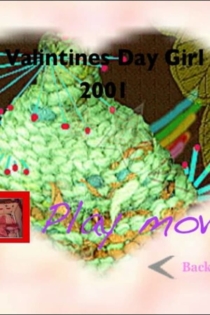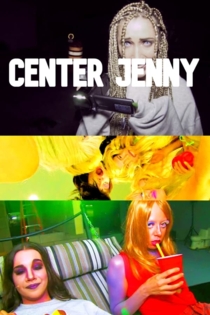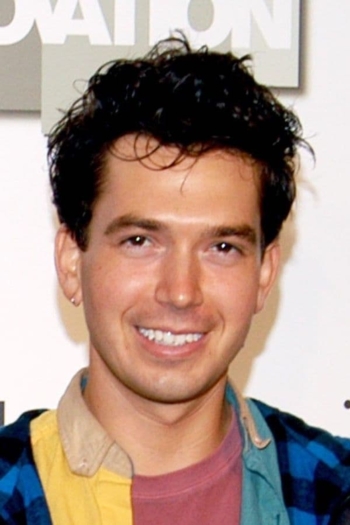
Ryan Trecartin
2021Junior War
Ryan Trecartin
In Junior War, a throng of highschoolers congregate at night for a party in the woods sometime in the year 2000. A band plays, the kids get drunk, the boys and girls tepidly flirt, and groups deploy into cars for the purpose of destroying mailboxes, tee-peeing houses, breaking lawn ornaments, and sparring with the police. The film is composed entirely of footage Trecartin took during his senior year of high school in exurban Ohio; as such, it baits the viewer with genealogical significance.
Junior War
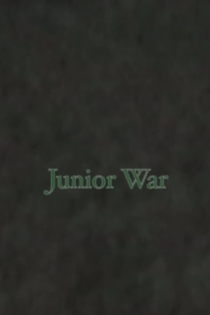
A Family Finds Entertainment
Ryan Trecartin
Ryan Trecartin, Lizzie Fitch
Ryan Trecartin’s film A Family Finds Entertainment is a camp extravaganza of epic proportions. Starring Trecartin’s family and friends, and the artist himself in a plethora of outrageous roles, A Family Finds Entertainment chronicles the story of mixed up teenager Skippy and his adventures in ‘coming out’. In this over the top celebration of queerness, Trecartin’s film mines the bizarre and endearing in an unabashed pastiche of ‘bad tv’ tropes. Cheesy video special effects, dress-up chess costumes, desperate scripts, and ‘after school special’ melodrama combine in the fluency of youth-culture lingo, reflecting a generation both damaged and affirmed by media consumption.
A Family Finds Entertainment
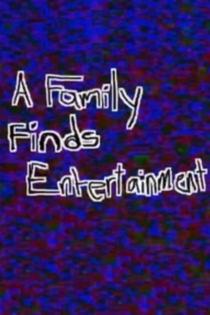
Sibling Topics (Section A)
Ryan Trecartin
Ryan Trecartin, Ashland Mines
Trecartin returns to his conception of family-as-business-enterprise, casting parent figures as managers and executives on one end of the spectrum, estranged children as freelancers on the other. The director plays four sisters named Ceader, Britt, Adobe and Deno, the boundaries of whom are indistinct. It is difficult to tell where one sister ends and the next begins. The sisters' questing—for identity, for romance, etc.—leads them on an episodic series of adventures, several of which are defined as "premises." A Trecartin premise plays out as a predetermined situation where the character initiating it has already set the tone, terms, and trajectory of the experience in their mind. The actual, lived event serves only as the shading-in of the outline.
Sibling Topics (Section A)
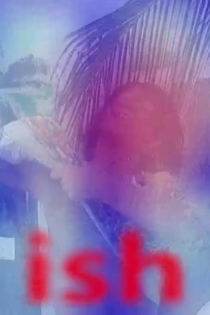
P.opular S.ky (section-ish)
Ryan Trecartin
Leilah Weinraub, Daniel Spann
In P.opular S.ky (section ish), a character played by Trecartin informs us that she wants ‘to live in a world where narration is the devil’. The ability to script oneself is an inalienable right, and anything that opposes that right must be rejected.
P.opular S.ky (section-ish)
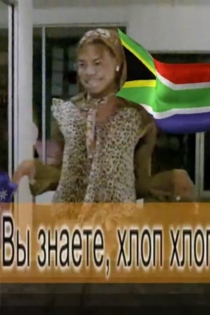
(Tommy-Chat Just E-mailed Me.)
Ryan Trecartin
Lizzie Fitch, Ryan Trecartin
Trecartin describes (Tommy-Chat Just E-mailed Me.) as a "narrative video short that takes place inside and outside of an e-mail." Trecartin's intense visualization of electronic communication is inhabited by a cast of stylized characters: Pam, a lesbian librarian with a screaming baby in an ultra-modern hotel room; Tammy and Beth, who live in an apartment filled with installation art; and Tommy, who is seen in a secluded lake house in the woods. Pam, Tommy and Tammy are all played by Trecartin, who, wearing his signature make-up, jumps back and forth between male and female roles. Totally self-absorbed and equipped with vestigial attention spans, the characters are constantly communicating with one another on the phone or online.
(Tommy-Chat Just E-mailed Me.)

I-Be Area
Ryan Trecartin
Ryan Trecartin, Lizzie Fitch
Dazzling and raucous, Ryan Trecartin's first feature-length video takes cues from chat rooms, social networking web sites, YouTube, John Waters, and Pee-wee’s Playhouse, and then turns them upside down and inside out to create an entirely singular video genre. In I-BE AREA, Trecartin intertwines the stories of an incredible ensemble cast to follow a day in the life of I-BE II, the rebellious clone of I-BE.
I-Be Area

What's The Love Making Babies For
Ryan Trecartin
Ryan Trecartin, Lizzie Fitch
Trecartin's extraordinary digital manipulations reach a new level as he speculates in vivid animation about reproduction, sexuality, and contemporary moralities. Collapsing footage appropriated from television, the Internet, and pop culture, Trecartin and his elaborately costumed collaborators manufacture an alien yet familiar reality. Inside this startling new video world, technophile gods wearing acid-washed denim argue about the future of gender and produce cryptic TV commercials. In a surreal backyard town meeting, characters deliver disjointed polemics assembled from clashing phrases that could have originated in ad campaigns, instant messaging conversations, or twisted episodes of syndicated science fiction. Constructed from the raw material of disposable media clichés and fads, Trecartin's narrative leaves us to answer the riddles he poses.
What's The Love Making Babies For

Wayne's World
Ryan Trecartin
Ryan Trecartin, Lizzie Fitch
Trecartin and his collaborator/co-star Lizzie Fitch ponder the messages delivered by the most banal forms of mass media and pop culture in their own unique version of a music video. They voice questions in song and dance segments that feature a deliberately ill-fitting pastiche of discarded fashions of the past two decades and recycled pop-music clichés. Totally immersed in their meticulously crafted private universe, Trecartin and Fitch coyly point at the gaudy artifice surrounding us in our own.
Wayne's World
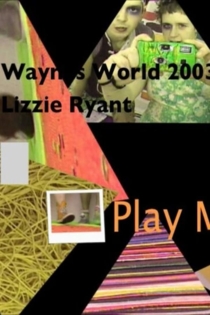
Temple Time
Ryan Trecartin
Ryan Trecartin, Lizzie Fitch
Shot in a former Masonic temple in Los Angeles – a five-story warren of large, cavernous rooms akin to a windowless convention center – Temple Time unfolds like a horror-movie group expedition in a campsite wasteland. Exploring the mildly eerie wilderness substitute, the characters talk about what they see instead of how they feel, giving the impression that everything they encounter is a discovery. For some characters these discoveries feel like memories of events that are about to repeat – the past and the future seem to occur simultaneously via overlapping layers of reality. The use of different video-capturing technologies – including handheld cameras, drones, and GoPro action cameras mounted to the actors’ bodies – offers numerous perspectives and vantage points, reinforcing Trecartin’s exploitation of cinematic discontinuities. In Temple Time, purpose and agency are constantly delayed and the multi-linear narratives are expressed in a networked sense of time.
Temple Time
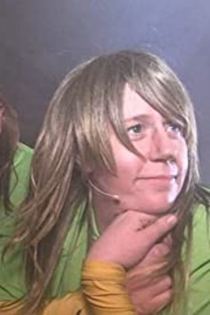
Roamie View: History Enhancement
Ryan Trecartin
Ryan Trecartin, Alison Powell
Roamie View: History Enhancement reveals JJ as a husk of his former self, overwhelmed by too many experimental personalities and reverted to factory presets. He hires Roamie Hood's (Alison Powell) company to roam backwards through time to research an opportunity for an edit that could alter his future-present.
Roamie View: History Enhancement
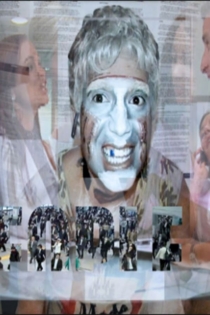
Kitchen Girl
Ryan Trecartin
Lizzie Fitch
In Kitchen Girl, Trecartin's frequent collaborator Lizzie Fitch throws herself into a state of total hysteria, portraying a girl who takes the childhood game of "playing house" to a dark and disturbing place. After pretending to cook dinner for her "kids," represented by colorful plush toys, she finds them lacking in appreciation of her efforts and throws them out the window. Fitch's overwrought performance is perfectly matched by Trecartin's skillful, hyperkinetic editing. Together they turn Trecartin's kitchen into a dimly lit world of mental trauma. Combining the innocuous with the malevolent, Fitch and Trecartin escort the viewer on a whirlwind tour of household dysfunction, child abuse, and isolation.
Kitchen Girl
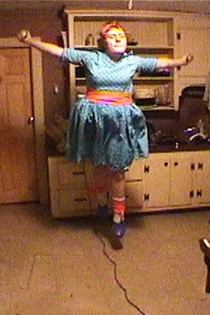
Comma Boat
Ryan Trecartin
Ryan Trecartin, Irina Cocimarov
In Comma Boat, we're stuck in a mock-authoritarian fantasy--a power trip. The film centers around a director-character played by Trecartin who oscillates between feelings of omnipotence and self-doubt. As if a post-human, post-gendered reincarnation of the Fellini character in 8 ½, the director gloats and frets about professional and ethical transgressions. "I know I lied to get ahead," he admits at one point. "I've made up so many different alphabets just to get ahead in my field." The director is fancier now, but the fear nags that he might be "repeating" himself "like a dumb soldier ova and ova and ova and ova." The meta-connection to the artist's own career, while obvious, is also a decoy. All art, at some level, is about the artist. Here, reflexivity is the surface level, providing a decodable veneer that encases something more unsettling and complex. Single-channel and 3-channel versions.
Comma Boat
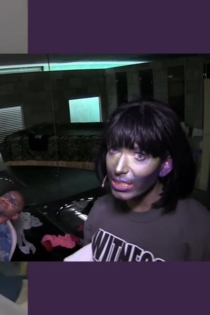
Love Part One
Ryan Trecartin
The centerpieces of this DVD are seven short films, numbered in chronological order as such: Kitchen Girl (2001), Belly's (2001), Valentines Day Girl (2001), Love Part One (2002) [not available online or elsewhere], Yo a Romantic Comedy (2002), Waynes World (2003), What's The Love Making Babies For (2003). Each short film is accompanied by its own menu screen, each with custom graphics and sound as well as a list of credits. Some secrets include the "HEY!" icon in the center, which reveals a short clip of New Orleans, and the "Information" text on the main menu, which features a complete six-minute long song. As for MediaInfo, I've added information for the longest short film included on the DVD. Each short film is in 4:3 OAR with stereo LPCM audio.
Love Part One
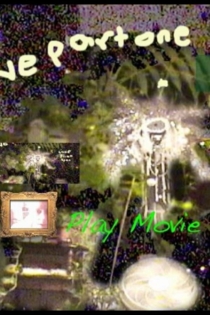
Valentine's Day Girl
Ryan Trecartin
Trecartin crafts a fantastical narrative about a girl whose obsessive personal utopia is disrupted. Trecartin's collaborator, Lizzie Fitch, plays a girl obsessed with Valentine's Day. Everything in her hyperactive, sped-up world revolves around Valentine's Day: red, white, and pink love-themed decorations cover every surface; heart shapes abound; Valentine's Day treats are everywhere. Her private festivities suddenly go awry as a hoard of Christmas-themed intruders appear and take her hostage in her own apartment. Gagged and bound, she is forced to watch while her ecstatic but sinister captors stage a frenzied Christmas intervention. Lizzie, Chris, Will, Ethan, Cara, Asher, Suzanne, Jess, Liz, Brian, Ryan. -- Electronic Arts Intermix
Valentine's Day Girl
